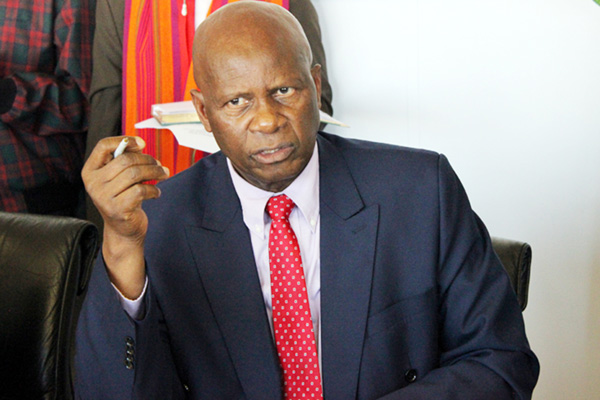
Two major events happened this week: first President Robert Mugabe presented the State of the Nation Address (Sona) on Tuesday in Parliament and on Thursday Finance minister Patrick Chinamasa came to the same august house with the 2017 budget.
Comment: The Standard Editor
Being year-end, the majority expected the two to provide hope for the future in a nation tottering on the brink of collapse.
While the Sona was largely criticised for failing to address the contentious issues like the liquidity crisis, which has bedevilled this nation for a whole year, rising unemployment levels and the unloved bond notes, the budget did not in any way help matters.
It is all doom and gloom for people whose airtime must be taxed to fund healthcare when the army, dormant at this point in time because there is no threat of war, is getting 8,3% of the total budget.
Mugabe was largely expected to touch on the key issue of bond notes because it is a sore area in the hearts of many who had built confidence around the US$ — a reserve currency.
How could he afford not to reassure the nation when depositors cannot access their money from banks and are highly suspicious of John Mangudya (Reserve bank of Zimbabwe governor) because they have lost savings before?
During hyperinflation depositors lost money through high-sounding solutions and pseudo currency named variously as bearers’ cheques, agro cheques, Treasury Bills for business and now there is a new creature — bond note export incentive, which even non-exporters are expected to use.
- Chamisa under fire over US$120K donation
- Mavhunga puts DeMbare into Chibuku quarterfinals
- Pension funds bet on Cabora Bassa oilfields
- Councils defy govt fire tender directive
Keep Reading
As if to make sure that Zimbabweans remain in a state of perpetual poverty, his Finance minister presented a budget that does not make even the slightest attempt to ameliorate the situation of the poor.
It is punitive in nature and does nothing to cut government expenditure or cut the civil service wage bill, which stands at $3 billion of the $4,1 billion budget.
Twice Chinamasa has tried to cut government expenditure by removing “ghost” workers and doing away with civil servants bonuses because the 13th cheque is not a right but a privilege, and twice he has been embarrassed, first by Mugabe in 2015 and second by Christopher Mushohwe — the Information minister.
The budget also proposed to freeze review of all remuneration and benefits with effect from January 1 2017 and a general freeze on prices, fees and charges by all public sector entities, but a vibrant free-market economy does not operate like that. Forced freezes have a way of bringing on shoddy services.
Projected revenue at $3,7 billion is less than the $4,1 billion budget and while Chinamasa proposed to review downwards presumptive taxes and the payment period from quarterly to monthly basis, with effect from January 1 2017, the projected growth of 1,7% seems too optimistic in a country where there in not much manufacturing and exportation taking place.
The two addresses just point to the fact that we are still in the woods and 2017 will even be tougher for the majority of the people who have to contend with Zanu PF election campaign machinations, punitive taxes and bond notes — a threat to their savings.











